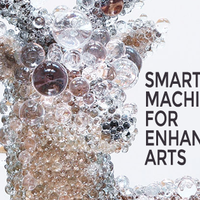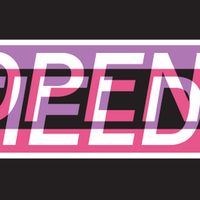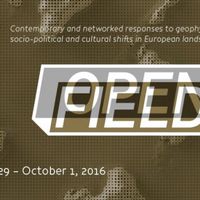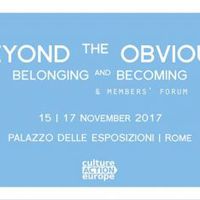ctrl+shift HUMAN: Arts, Sciences and Technologies in Code Dependent Societies - CAE conference in Timisoara
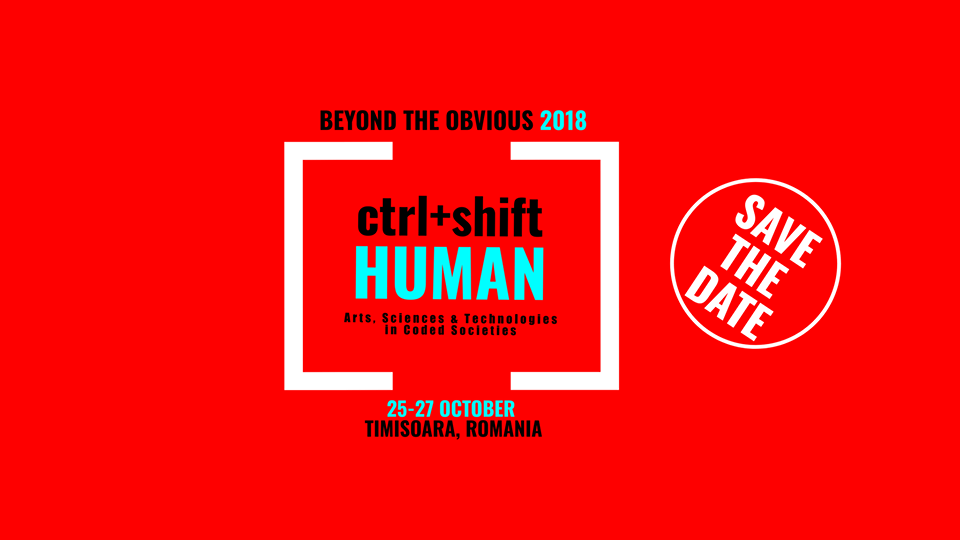
Culture Action Europe 2018 Beyond the Obvious (BtO) Conference ctrl+shift HUMAN: Arts, Sciences and Technologies in Code Dependent Societies takes place in Timisoara, Romania on 25-27 October.
Registration is open with earlybird rates till 15 September
Timisoara will be the European Capital of Culture 2021
ctrl+shift HUMAN: Arts, Sciences and Technologies in Coded Societies
Code, algorithms and artificial intelligence complement the human condition, can solve problems, accelerate decision-making, and help complete complex tasks through self-learning processes. The framework in which these operate is often defined as a communication system that is universal, transparent, simple and accessible.
However, algorithmic processes are inscribed in our infrastructures. And beyond the purely functional transmission and transformation of the data, they often work invisibly, shaping and influencing social, cultural, economical and political spheres and redefining our individual and common identities.
This year’s Beyond the Obvious (BtO) Conference ctrl+shift HUMAN: Arts, Sciences and Technologies in Code Dependent Societies will focus on that paradigm: between the fascination generated by the possibilities this hybrid and augmented condition brings, and the awareness of the new patterns that lead to redefinitions of creativity, disciplines, representation, globalization, production, labor… all within the framework of an increasing code dependence.
We will bring together various experiences and practices from the fields of arts and culture, sciences, technologies, activisms, theory and politics, to explore possible cross-disciplinary answers and diverse actions towards the challenging relations between Technology and Humans. How to keep our humanity in this and find new forms of sense making in a post productive and global society? What are the new models in those relations, and which role does culture, the arts and education play? Are our institutions ready for it, aware of their new role? Which organizations and policies are needed to foster alternative, transsectorial and intercultural competences?
TAGS: AI, Anthropocene, Algorithms, Cultural policies, Data Harvesting, Data Forensics, Decision making processes, Identities, Media Competences, Posthumanism, Research, Science-Fiction, STEAM, STAD.
Similar content
deadline
01 Sep 2017
from - to
24 Jan 2014 - 26 Jan 2014
from - to
19 Oct 2017 - 21 Oct 2017
from - to
29 Oct 2016 - 02 Nov 2016
from - to
15 Nov 2017 - 17 Nov 2017


